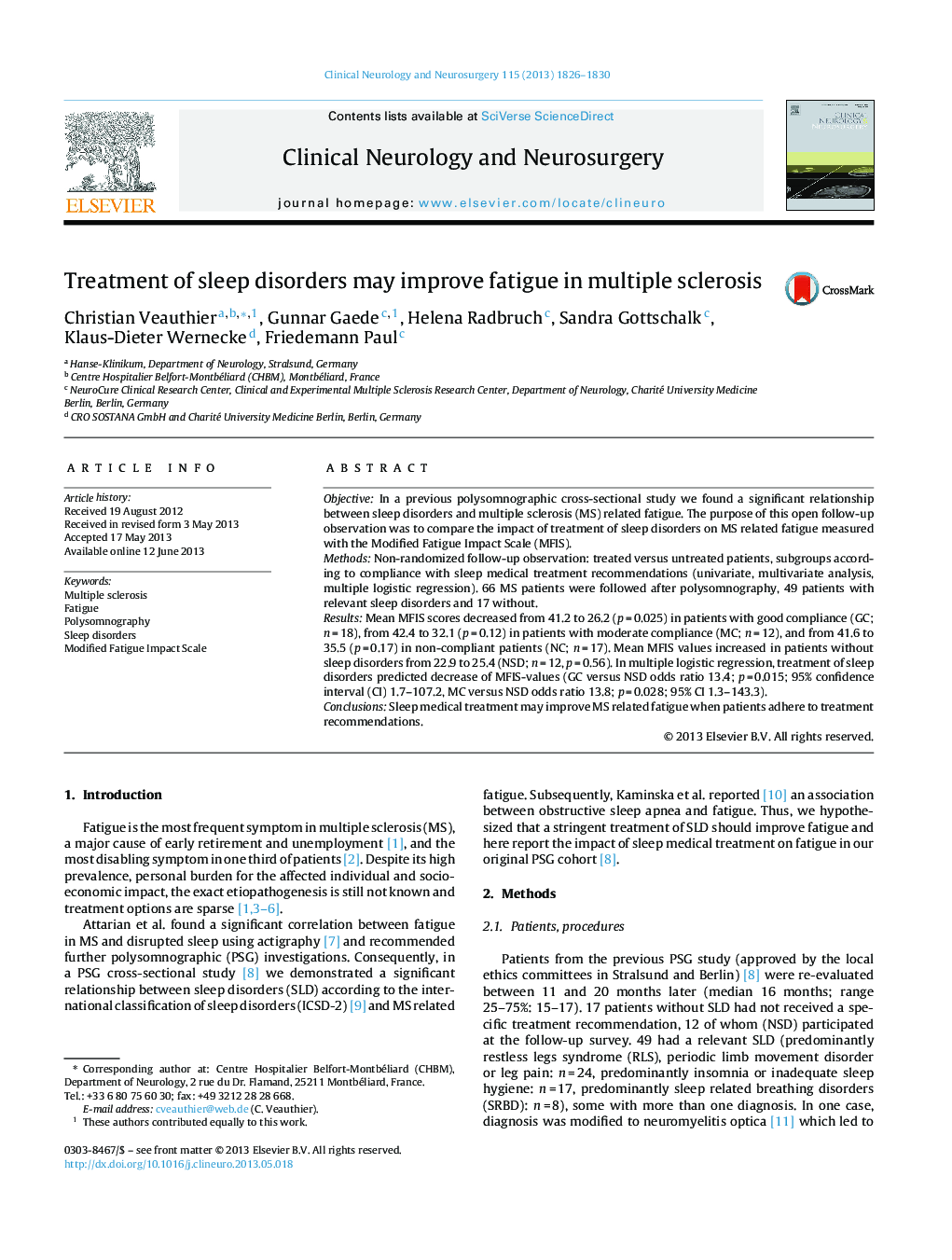| Article ID | Journal | Published Year | Pages | File Type |
|---|---|---|---|---|
| 3040508 | Clinical Neurology and Neurosurgery | 2013 | 5 Pages |
ObjectiveIn a previous polysomnographic cross-sectional study we found a significant relationship between sleep disorders and multiple sclerosis (MS) related fatigue. The purpose of this open follow-up observation was to compare the impact of treatment of sleep disorders on MS related fatigue measured with the Modified Fatigue Impact Scale (MFIS).MethodsNon-randomized follow-up observation: treated versus untreated patients, subgroups according to compliance with sleep medical treatment recommendations (univariate, multivariate analysis, multiple logistic regression). 66 MS patients were followed after polysomnography, 49 patients with relevant sleep disorders and 17 without.ResultsMean MFIS scores decreased from 41.2 to 26.2 (p = 0.025) in patients with good compliance (GC; n = 18), from 42.4 to 32.1 (p = 0.12) in patients with moderate compliance (MC; n = 12), and from 41.6 to 35.5 (p = 0.17) in non-compliant patients (NC; n = 17). Mean MFIS values increased in patients without sleep disorders from 22.9 to 25.4 (NSD; n = 12, p = 0.56). In multiple logistic regression, treatment of sleep disorders predicted decrease of MFIS-values (GC versus NSD odds ratio 13.4; p = 0.015; 95% confidence interval (CI) 1.7–107.2, MC versus NSD odds ratio 13.8; p = 0.028; 95% CI 1.3–143.3).ConclusionsSleep medical treatment may improve MS related fatigue when patients adhere to treatment recommendations.
